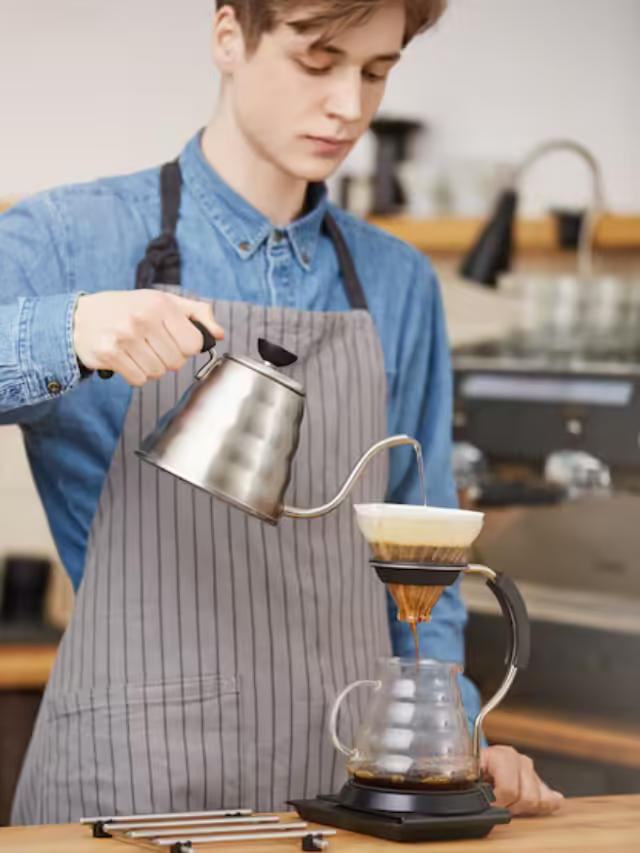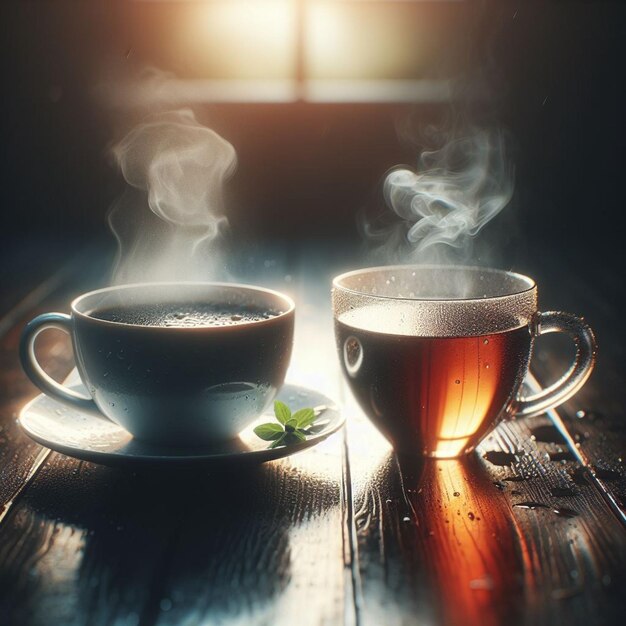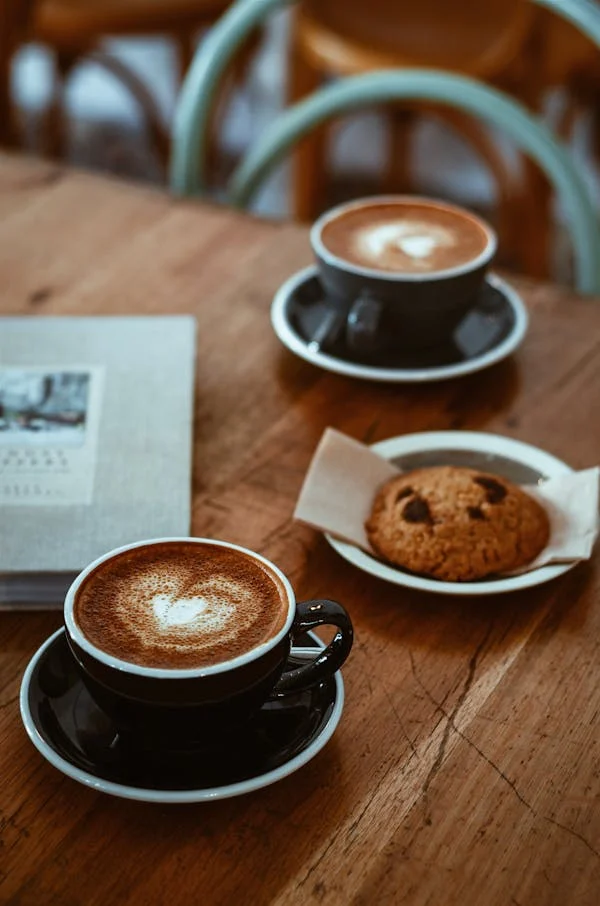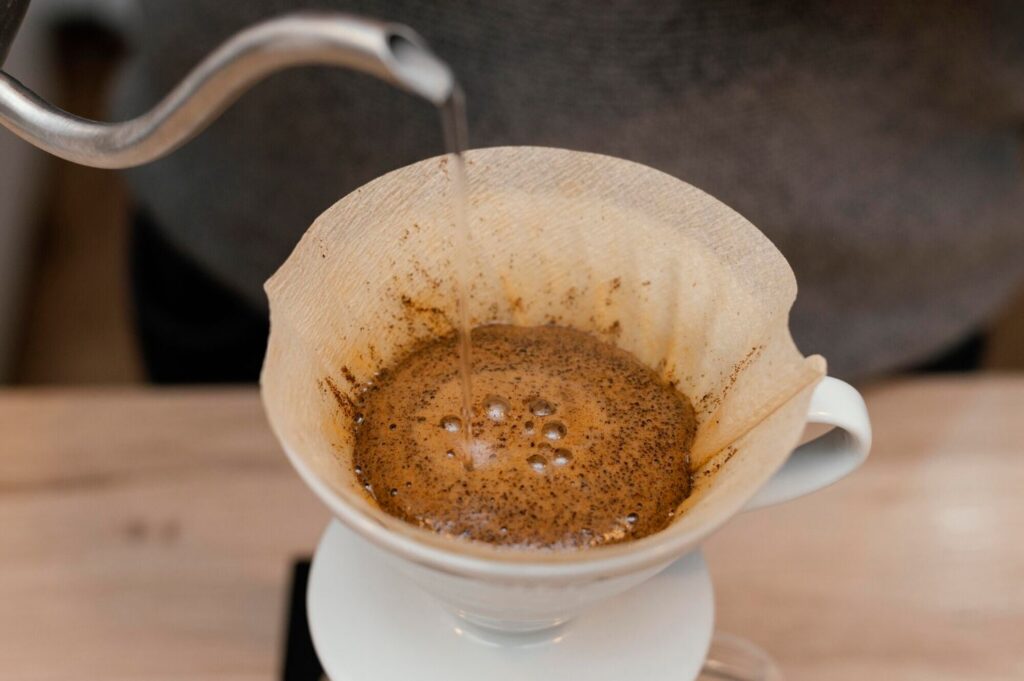
A great cup of coffee begins long before you take your first sip. It starts with choosing the right filter for your brewing process. While often overlooked, the coffee filter plays an important role in your brew’s flavor, clarity, and overall experience. From paper and metal to cloth and even single-use pods, each filter type can dramatically change the taste of your coffee. Whether you’re a casual coffee drinker or a home barista, understanding how filters work and which one suits your brewing method can take your coffee game to new heights. In this guide, we’ll explore the different types of coffee filters and how to choose the right one for your preferred brewing method.
Table of Contents
Types of Coffee Filters
Before diving into specific brewing methods, it’s important to understand the basic types of coffee filters available on the market:
- Paper Filters: Paper filters are known for their excellent filtration, commonly used in drip coffee makers, pour-overs, and aero presses. They remove most coffee oils and micro-grounds, resulting in a clean, crisp cup. Paper filters come in two types: bleached (white) and unbleached (brown). While bleached filters are treated to remove their natural color, unbleached filters are more environmentally friendly but can impart a slight aftertaste to the coffee if not washed before use.
- Metal Filters: Often used in French presses, pour-overs, and aero presses, metal filters allow excess oil and finer coffee grounds to pass through, resulting in a fuller and richer flavor. These reusable filters are eco-friendly and add a layer of sustainability to your coffee routine. However, the resulting coffee may contain a small amount of sediment.
- Cloth Filters: Less common but gaining in popularity, cloth filters provide a balance between paper and metal filters. They remove some oils and fine particles, offering a cup with more body than paper-filtered coffee but less sediment than a metal-filtered brew. Cloth filters are reusable and can last for months with proper care but require thorough cleaning to avoid stale flavors.
- Pod Filters: Primarily used in single-serve coffee makers like Keurig or Nespresso machines, pod filters are convenient but limit customization. These filters are pre-filled with coffee grounds, and while they offer consistency, the lack of fresh-ground coffee can affect the quality of the taste.
Matching Filters with Brewing Methods
1. Drip Coffee Makers
For drip coffee makers, paper filters are the most common choice. They ensure a clean and smooth cup by trapping oil and sediment. If you prefer a full-bodied coffee, consider using a metal mesh filter, which extracts some of the coffee’s natural oils to add depth of flavor.
- Best Filter: Paper or Metal
- Why: Paper provides clarity and smoothness; Metal enhances body and wealth.
2. Pour-Over (Chemex, V60)
Pourover methods thrive on precision and control, and filter selection can greatly affect the final cup. Chemex users often prefer coarser paper filters that trap more oils and grounds, creating a cleaner and crisper flavor profile. V60 users, on the other hand, have options between paper filters and metal filters for a stronger flavor.
- Best Filter: Paper (Chemex) or Paper/Metal (V60)
- Why: Chemex paper filters produce cleaner blends. The V60 offers flexibility between clarity and body.
3. French Press
The French press uses a built-in metal mesh filter, which allows for a more textured, full-bodied coffee. This method yields more oil and finer grounds, resulting in a fuller, bolder cup. While some French press enthusiasts enjoy heavy mouthfeels, those who prefer less sediment may consider switching to double filtering or a fine mesh screen.
- Best Filter: Metal
- Why: Adds body and richness, allowing oil to pass through.
4. AeroPress
The AeroPress is a versatile brewing tool that accommodates both paper and metal filters, depending on the desired results. Paper filters will provide a cleaner, milder coffee with minimal oil, while metal filters will give you a fuller-bodied brew with better flavors.
- Best Filter: Paper or Metal
- Why: paper for clean cups; Metal for added texture and flavor.
5. Espresso Machines
Espresso machines usually come with built-in metal filters, designed to handle the high pressure required to extract espresso. Fine mesh filters allow the coffee’s natural oils to form the signature crema on top of the espresso shot. There is little need for a replacement filter type in this method, as metal filters are optimized for the concentrated flavor of espresso.
- Best Filter: Built-in Metal
- Why: Necessary for extracting espresso and creating crema.
6. Cold Brew
Cold brew coffee is usually made using coarse grounds that are steeped in cold water for a long period. Metal or cloth filters work best in this method, allowing smooth, rich coffee to percolate without overly fine grounds. Cloth filters, in particular, strike a good balance by removing most of the sediment while still preserving rich flavors.
- Best Filter: Metal or Cloth
- Why: Balances smoothness with rich, bold flavor.
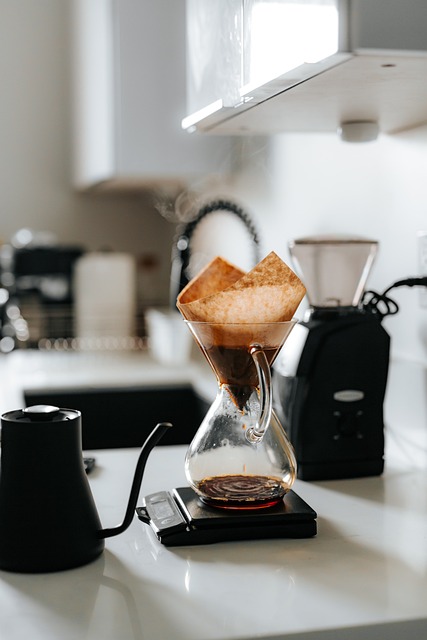
Considerations for Choosing the Right Filter
When choosing a filter, consider these important factors:
- Taste Preference: If you enjoy a clean and light cup, opt for paper filters. For richer, more robust flavors, metal or cloth filters are your best bet.
- Environmental Impact: Reusable filters such as metal and cloth are more environmentally friendly than disposable paper filters. If sustainability is important to you, these options are worth considering.
- Maintenance: Paper filters are low-maintenance but single-use, while metal and cloth filters require regular cleaning. Cloth filters, in particular, require thorough rinsing and occasional boiling to maintain quality.
- Cost: Paper filters are inexpensive but add up over time. Metal and cloth filters have a higher initial cost but are reusable, offering long-term savings.
Conclusion
Choosing the right coffee filter for your brewing method is essential to achieving the best cup of coffee. Each filter type whether paper, metal, or cloth offers different advantages that cater to different flavor profiles and brewing preferences. By understanding how each filter interacts with your chosen brewing method, you can tailor your coffee experience to your tastes and values, whether it’s maximizing flavor, reducing environmental impact, Minimizing, or balancing convenience and quality.
Ultimately, the best coffee filter is one that fits your brewing style, meets your taste preferences, and aligns with your values, allowing you to enjoy your coffee just the way it is. Just the way you like it. So, explore the options, experiment with different filters, and discover the filter that turns your daily coffee ritual into a truly personalised experience.

